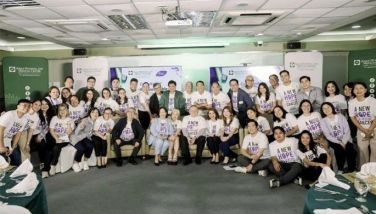Why teachers too become corrupt

March 21, 2007 | 12:00am
 First, a parent, reacting to my series on what’s wrong with us, narrated how youths are shown corruption right in public schools as if it’s normal. Now we have two teachers, both requesting anonymity for obvious reasons, amplifying that lament.
First, a parent, reacting to my series on what’s wrong with us, narrated how youths are shown corruption right in public schools as if it’s normal. Now we have two teachers, both requesting anonymity for obvious reasons, amplifying that lament.
Let’s just call the first Teacher-1:
"I couldn’t agree more with the parent in your column. I might add: children not only are exposed to corruption but also are made to participate in this detestable deed by no less than the principals and teachers. For the past several years I have been greatly saddened by the cheating (just one of the many ills afflicting public education) that takes place when achievement tests are administered on the last month of the school year. Because schools and principals are rated partly on the performance of the students, they instruct teachers to aim for high grades by hook or by crook. Fearing harassment that can be concealed through a thousand and one ways, teachers comply by giving answers to the students during the test. Some even coach them on how to copy from each other. All the grieving about low achievement scores could triple if the true results were to be known.
"Last Mar. 1-2 I again witnessed and heard stories of cheating in different schools. In one, an examiner asked a student if the teachers had given them the answers days before, and the latter nodded. The principal confronted the examiner thus: ‘You have no right to ask such question. Does not your school cheat too?’ In other schools teachers unashamedly read out the answers in front of examiners.
This has been going on for decades, and it looks like everyone in the school system has given up on it. And yet we wonder why we’re the most corrupt in Asia?"
"I didn’t teach for a living. I’m from a high-income family. I used to be known in the school as the only contractual with a car. I did it for the love of working in a youthful and idealistic environment called school. From Sept. 2003 to Dec. 2004 I taught Math to sophomores and juniors.
"Why do I open with such paragraph? Your Gotcha of Mar. 12, 2007 reminded me of that short stint. As teacher, it was my duty to be an elder brother to my poor students. They are among my fondest memories.
"There is the other side of public school. Tickets are sold every two months, If the students don’t buy, the teachers have to pay for all that were given to them. But that does not make them innocent of corruption. They got commissions from the sales. During those three times, I paid for all my tickets since I could afford to anyway.
"I tolerated that form of corruption. What got my goat was when the administration used technicalities to cover for their insecurities. I was taking my Master’s degree before I worked at the public school. Upon joining the faculty, I at once applied for study permit, but the headmaster rejected it, citing some gobbledygook. I appealed; they granted me Saturdays off for my Master’s classes, but only for a month. It was like saying no all over again. Why did they do that to all contractual teachers? They were insecure about their own positions and lack of post-grad honors. Then, there was the frequent fault-finding, also a cover for the principal’s insecurity."
"Corruption and insecurity is a deadly combination. But I’ve also seen principals who are not insecure and are thus good administrators. They apply the rules to all, and know how to delegate responsibility."
BrandSpace Articles
<
>
- Latest
- Trending
Trending
Latest
Recommended


























